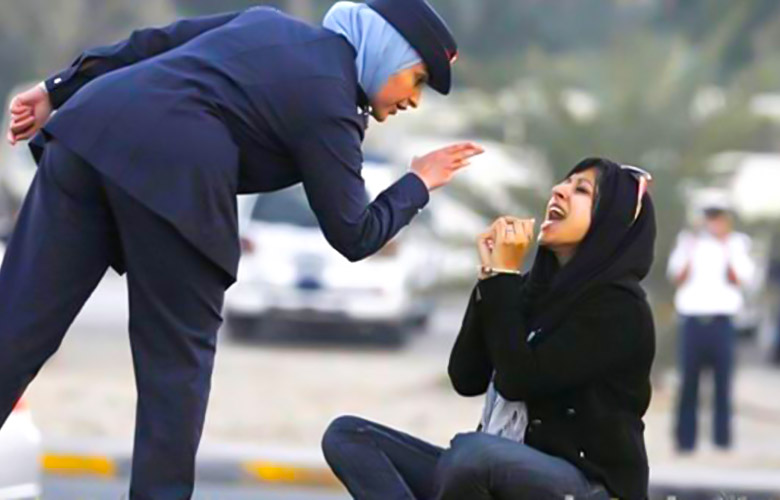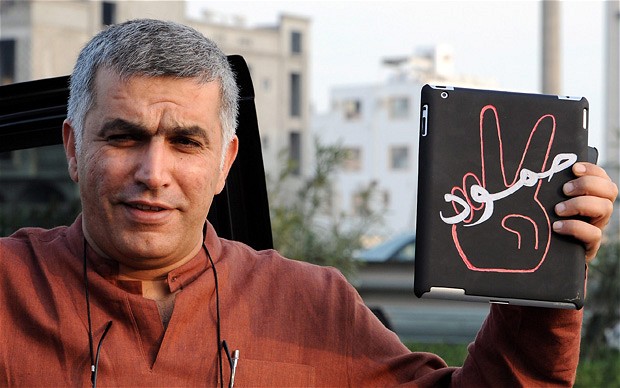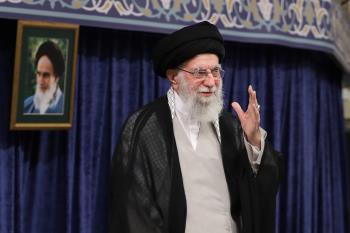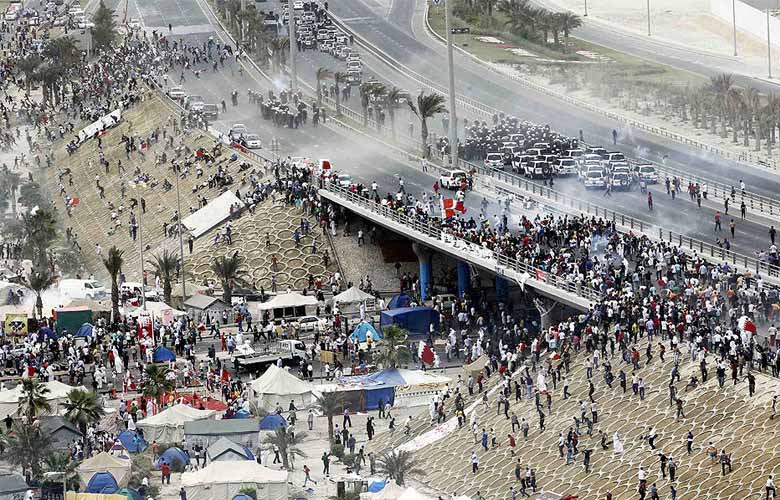Alwaght- OVER the past decade, Britain has stripped 27 people of their citizenship on national-security grounds. Bahrain’s native population is 1% of Britain’s, but since 2014 the kingdom has revoked the citizenship of over 300 people for supposedly similar reasons. The latest is Ayatollah Sheikh Isa Qassim, regarded as the spiritual leader of the country’s Shia majority. On June 20th the Sunni-led government said he had been promoting extremism and sectarianism. He was also an outspoken critic of an increasingly ruthless regime.
This is merely the latest example of a crackdown on peaceful dissent. On June 14th the authorities banned the biggest opposition group, al-Wefaq, having extended the prison term of its leader, Sheikh Ali Salman, from four years to nine. A day earlier they detained Nabeel Rajab, a human-rights activist. Another prominent dissident, Zainab al-Khawaja, fled the country in early June after being told that she would be rearrested.

Zainab al-Khawaja left Bahrain for Denmark after the Regime was preparing files to imprison her indefinitely
The government, which is dominated by the royal family, claims the opposition is sowing discord. But activists blame the authorities themselves. During the Arab spring in 2011, a large portion of the population took to the streets to demand wide-ranging political reforms. The regime, backed by Saudi Arabia and the United Arab Emirates, also Sunni-led monarchies, responded with violence. Amid calls for his overthrow, King Hamad bin Isa al-Khalifa did create a commission that documented the state’s human-rights abuses. He even made some changes, with British assistance, such as setting up a prisons inspectorate. Yet the repression continues.

Nabeel Rajab, president of the Bahrain Center for Human Rights
Protests are now banned in Manama, the capital, while new laws have made it easier to lock up and revoke the citizenship of critics. Ms Khawaja says she has been arrested 11 times, once for ripping up a picture of the king. Her father, Abdulhadi, a human-rights activist, was arrested in 2011 and sentenced to life in prison for plotting against the state (ie, calling for democracy). “Building 10 in Jaw prison has become known as the torture building, and I have personally been hearing the screams of the victims,” he wrote last year.
Critics of the government are often accused of serving “foreign interests”. That usually means Iran, which officials say fomented the uprising in 2011. The claim has been debunked; but it wins support in the region. Ayatollah Qassim and al-Wefaq are accused of having ties to foreign powers. Al-Wefaq, which is mainly Shia and seeks a constitutional monarchy, upset the regime by boycotting the general election of 2014.
Bahrain paid millions of dollars to Western PR firms to clean up its image after 2011. Now it seems contemptuous of foreign opinion. After the authorities prevented opposition members from attending a meeting at the UN this month, the body’s high commissioner for human rights said that “repression will not eliminate people’s grievances; it will increase them.” Bahrain’s foreign minister responded on Twitter: “We will not waste our time listening to the words of a high commissioner who has no strength or power.”
Juan Méndez, the UN’s special rapporteur on torture, has said that Bahrain considers itself shielded from scrutiny due to its relations with Britain, which is building a naval base in the kingdom, and America, which keeps its Fifth Fleet there. Last year America lifted restrictions on arms sales to Bahrain, in place since 2011, citing progress on human rights. But at least it has condemned the recent crackdown. When Philip Hammond, Britain’s foreign secretary, visited the kingdom last month he wrote approvingly of its “commitment to continuing reforms”.
America and Britain view Bahrain as a steady ally in a tough neighbourhood. But the kingdom’s stability may be illusory. The state’s actions have provoked the opposition, in particular Shias, who have long complained of discrimination. Left with no other choice, some may become violent or even turn to Iran for help. Bahrain may be bringing on itself exactly what it claims to be preventing.
Source: Economist.com



























